We congratulate and extend our best wishes to you, dear friends, on the occasion of the Sha'banian celebrations of the birth of Imam Hussein (PBUH), Imam Zain al-Abidin (PBUH), and Hazrat Abbas (PBUH), and we hope that just as we Aradis celebrated and rejoiced in the holy city of Qom last night, you too will be filled with joy and happiness in your hearts and souls on these occasions and ceremonies, God willing.
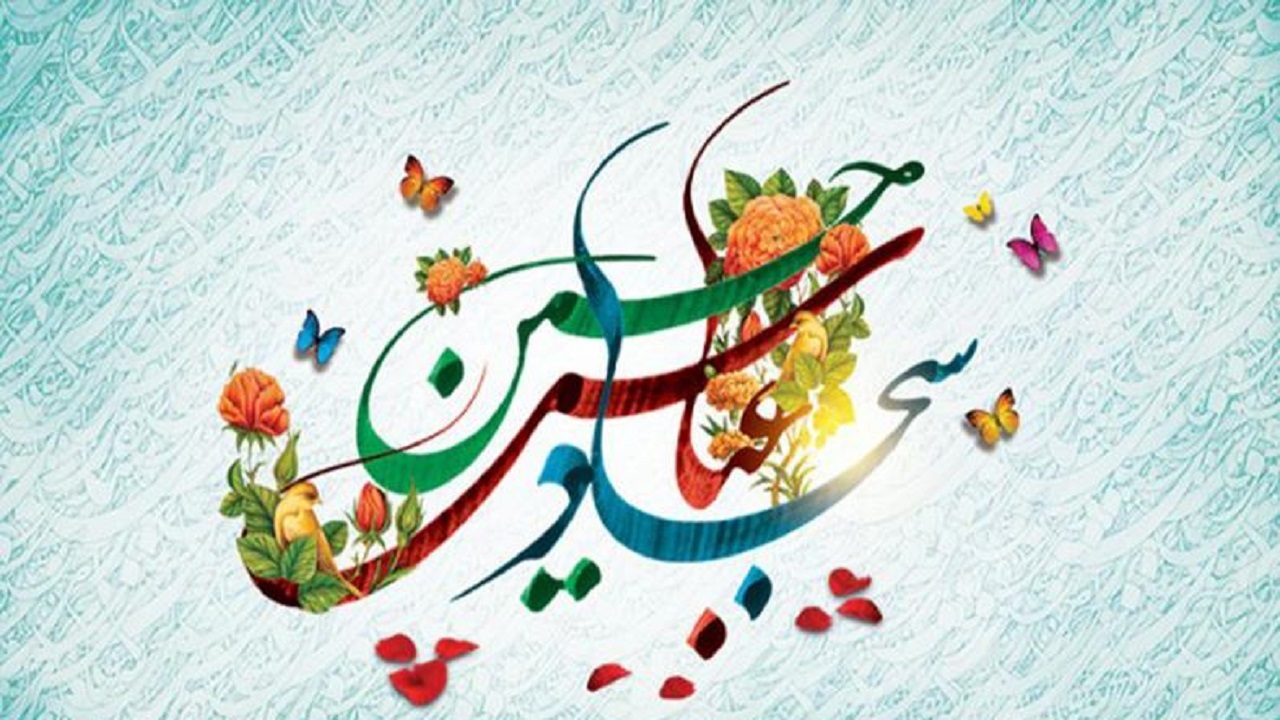
The first condition of this cycle is recognizing market participants.
In the money-making market of commerce, there are four categories, each of which may include one or several groups.
First category: Producers or suppliers
Second category: B2B entities
Third category: B2C entities
Fourth category: Customers
Note that we do not adhere to the order in the introduction of categories below.
Suppliers and customers (first and fourth categories)
All of you distinguished individuals are familiar with producers and customers, meaning the first and fourth categories are known to you.
A producer is someone who produces, and a customer is someone who consumes.

You have surely heard the slogan "from production to consumption," which is often a completely false advertising slogan.
This slogan aims to imply that the four-category cycle of commerce has been reduced to two categories, which is by no means possible except in very rare and exceptional cases.
From production to consumption means that as a customer, you directly go to the manufacturer's factory and purchase the product you need!!!

Which one of you, esteemed individuals, went straight to the factory to buy butter, cakes, drinks, tomatoes and other necessities of life and the factory owner opened the door and allowed you to buy the products?
Or are you allowed to go to the manufacturing factory to buy mobile phones, watches, televisions, floors and other consumer goods while the workers are busy working?
It is even common to see workshops claiming to be "from production to consumption," such as furniture workshops, but when you visit them, you realize they are lying, as they also have a shop and have contracted with a manufacturer to produce goods for them to sell.
In reality, the issue is that production has concerns that are entirely different from sales.
The minds of most producers do not have any inclination towards sales and trade.
And if there are few producers who have acted strongly in sales and trade, they no longer have the direct selling attraction to the end customer, therefore, it is essential for other categories or groups to be active in the transfer of a product from production to the final customer.
The Third Category or B2C
B2C means Business to Customer.
That is, an owner of a business to a customer.
As a customer, where do you purchase your goods?
These places are B2C establishments.
You buy from supermarkets.
Buy from boutiques.
Buy from home appliance stores.
Buy from online stores.
Whether physical or online, any place where consumers purchase goods is considered a B2C location.
Chain stores like Refah, Ofoq Kourosh, and Saraye Irani are all B2C establishments.
Similarly, online platforms like Digikala, Basalam, Torob, and Emalls are mostly B2C sellers.
For instance, Digikala has stated in its recent announcements that it has 370,000 sellers, all of whom are B2C.
Please try to recognize and organize B2C establishments properly in your mind using examples you create for yourself.
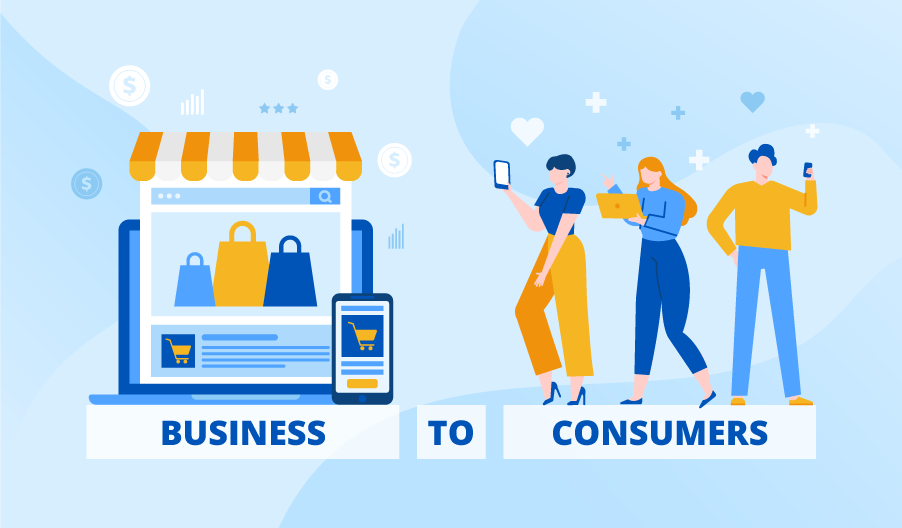
The Second Category or B2B
Now, the question arises: do B2C establishments purchase directly from manufacturers?
Most of them do not.
Do you think your local supermarket buys its goods directly from the factory?
Does the boutique in your town visit the clothing factory directly and make purchases from there?
Since most B2C establishments do not have significant sales to persuade manufacturers to deal with them directly, they require another category called B2B.
B2B means Business to Business.
That is, business owners do not sell their products to customers, but sell their products to other business owners.
For example, your local supermarket procures its goods through a wholesaler.
Or it obtains items from the factory's sales agency in the city.
Therefore, that wholesaler or sales agency is a B2B entity.
Again, please provide examples to familiarize yourself with B2B entities more effectively.
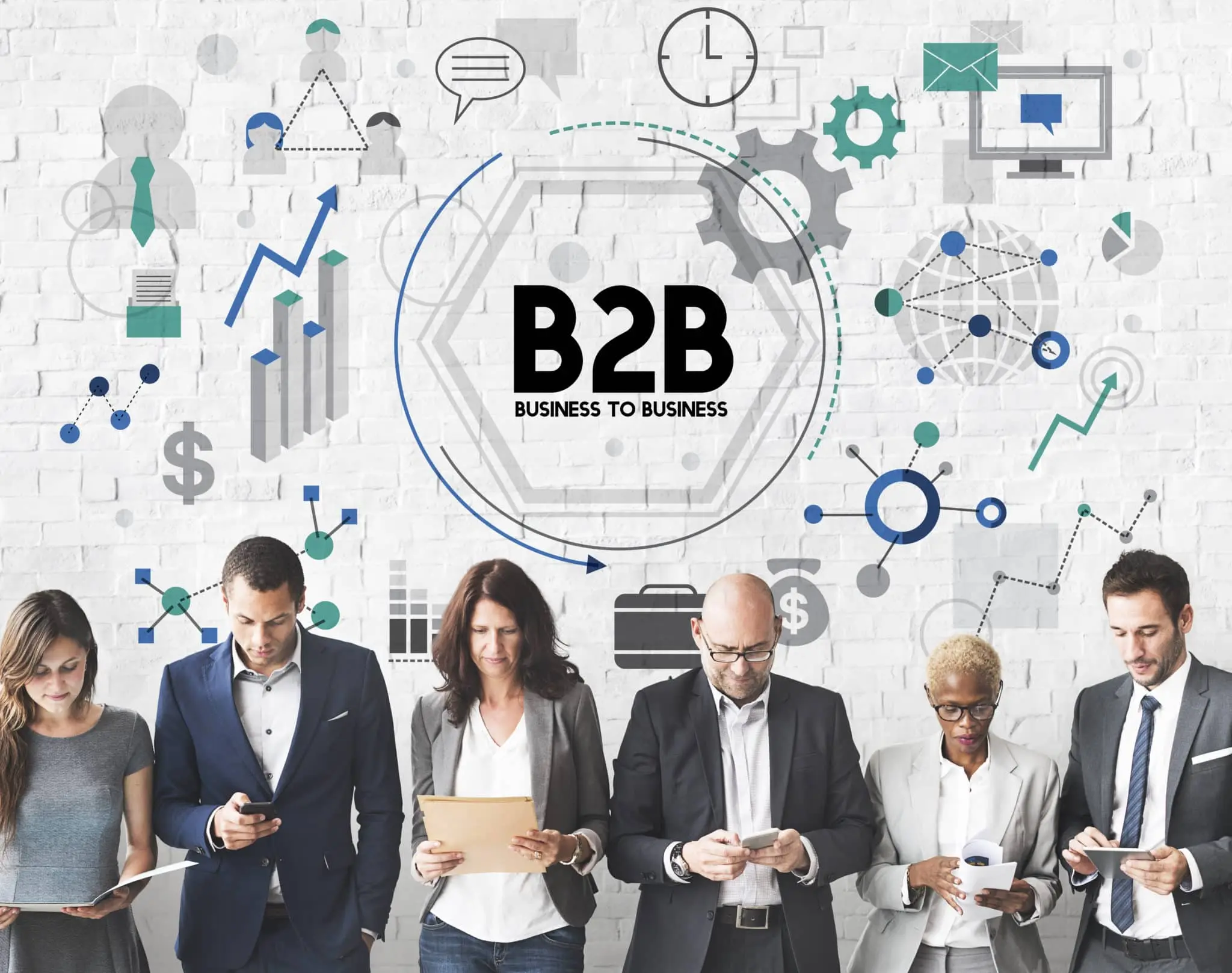
Summary of these four groups
We recognize producers and customers.
Someone who delivers the product directly to the customer is called B2C.
Someone who delivers the product to B2Cs is called B2B.
The existence of these four categories in over 99% of trades, purchases, and the movement of goods from the factory to the consumer is undeniable.
The idea that they are middlemen and should be removed from the economic cycle is completely wrong because these dignified intermediaries, who may have a negative connotation in your mind, are in fact, the beloved individuals without whom no goods would reach the people, and people would be in distress.
These are the same merchants whom the Prophet of God referred to as beloved by saying: "The merchant is the beloved and friend of God."
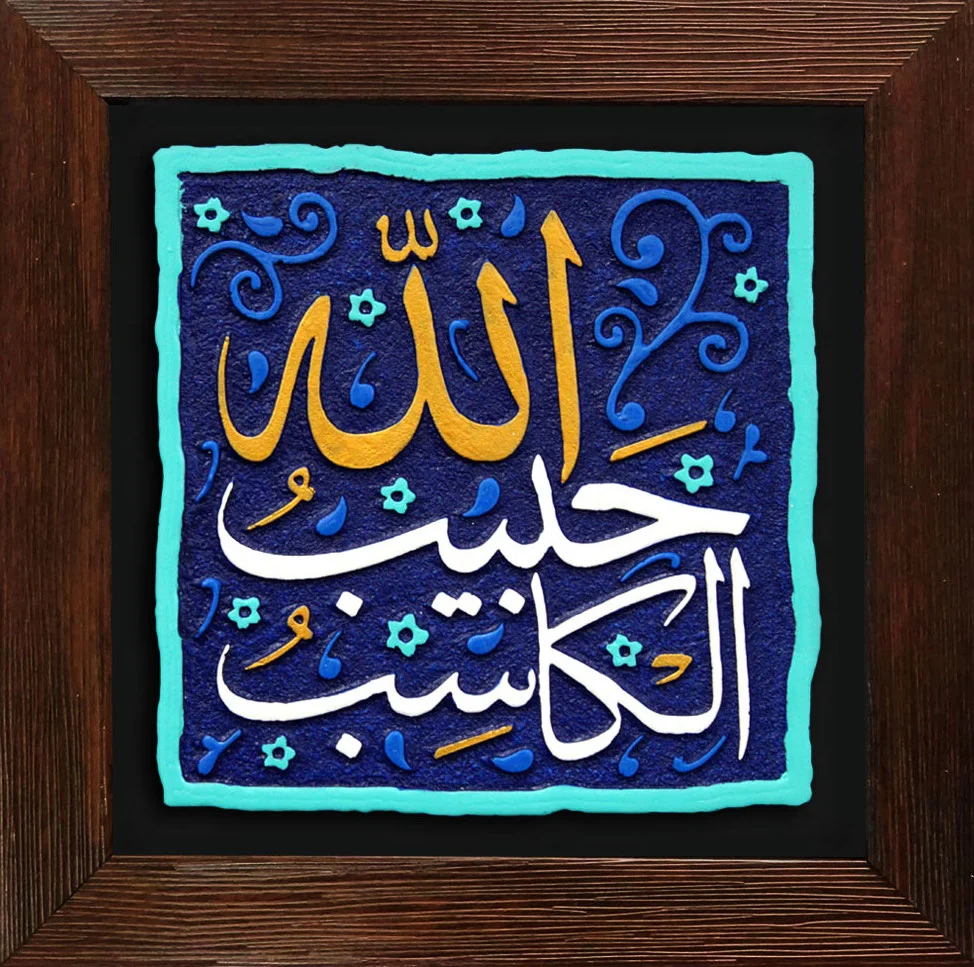
Where do merchants fit into this cycle?
Merchants typically play three roles in this cycle.
The first role is when the merchant themselves engage in B2C transactions.
For example, a merchant selling goods or a production line to a factory owner, or entering into a contract with a municipality to supply flowers and plants, or providing the asphalt needed for a road construction project.
In reality, the customer itself is in direct contract with the merchant.
The second role of the merchant is to sell their goods to a B2C entity.
For instance, a large supermarket in a city sells walnuts, and a merchant negotiates with them and supplies the walnuts.
Here, the merchant has sold their goods to a B2C entity, placing themselves in the B2B role.
The third role of the merchant is to sell their goods to a wholesaler, who themselves are a B2B entity.
In this scenario, the merchant becomes the B2B player, while the buyer is also a B2B entity, not a B2C one.
If it seems complicated, simply reviewing and practicing the concept a few times should help it settle in your mind.
Thus, a merchant can engage in three types of trade.
A. They can engage directly in B2C, meaning they sell directly to the final consumer.
B. They can engage in B2B by selling to a B2C entity.
C. They can engage in B2B by selling to another B2B entity.
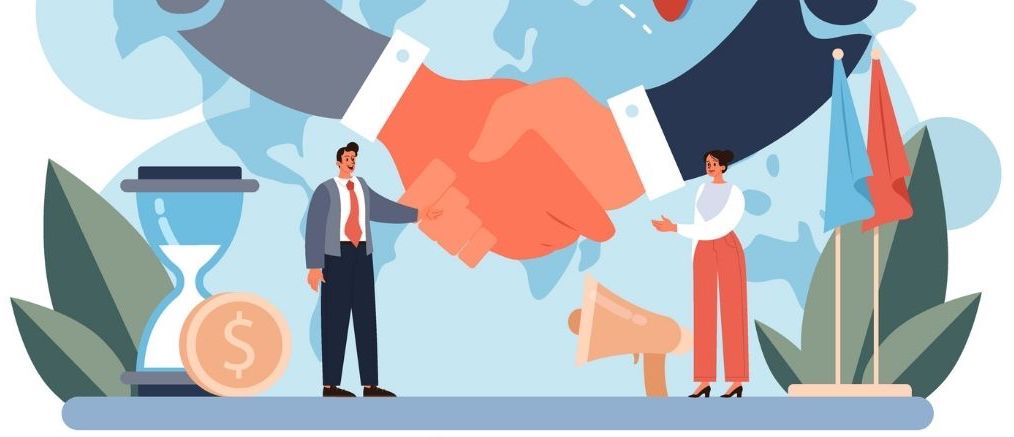
A merchant must know his/her customers.
Therefore, you as a businessman, know who your target audience is.
These are your target market.
You must know them, and they must know you.
Now, be precise about your product.
Is your product such that you can find a good end consumer for it?
Can you find a large and wholesale customer for your product?
Don't rush to answer.
Think deeply and incorporate this into your daily thoughts.
It may be difficult at first to uncover them, but with a little thought, research, and investigation, you'll realize, oh my ignorant mind.
What a good target market you had and you were unaware of them.
In the next step, consider what B2C groups could potentially be buyers of your product?
Identify them and categorize them broadly.
In the third step, think about what B2B groups could potentially be buyers of your product?
List and write them down as well.

Where are your customers? Who should initiate the greeting?
You need to search and see where can you find your customers?
Where can they find you?
Don't just wait for them to find you.
You should also have plans and strategies in mind for finding them.
Don't be like a boy who says, "I'll only marry a girl who proposes to me."
Some merchants just sit and wait for those interested in their products to find them, without making any effort to find customers themselves.
Unfortunately, this passive approach is common in most markets.
A shopkeeper waits for customers to come to them and doesn't go out to find customers.
A professional merchant doesn't wait for them to come, they go out and find their audience.
Ask yourself this question.
Did you come and find Arad, or did Arad find you?
What percentage of you, esteemed merchants, were actively searching for business and searched for business online, found us, and then engaged with us through multiple contacts to understand our offerings?
Has it been like this?
According to our statistics, maybe less than 0.1% of merchants were like this out of every thousand.
It was us who advertised, and you filled out a form.
Then we contacted you multiple times and answered your questions and clarifications each time.
Many times you didn't even answer our calls, but still, we pursued you, and if it wasn't for our repeated follow-ups, you would never have joined.
Perhaps less than 1% of you were actively pursuing and reaching out, or searching, and found us.
If Arad had waited for people to come to him for business, he wouldn't have a fraction of the greatness he has today.
Haven't you heard that greeting carries seventy rewards, sixty-nine of which belong to the greeter, and one to the one who responds?
Most merchants want to sit back and wait for customers to come and greet them.
Unaware of the many blessings, money, and profits hidden in that first greeting.
Just as you engage with them by using guest posts and empower your website to find those who greet you through Google search, you should also seek to find and initiate the first greeting.
If you just do this one thing, imagine how much you'll grow and advance and we become the subject of your prayers in the future.
Promise yourself that I will also say the first greeting.
I won't just wait for my customers to greet me.
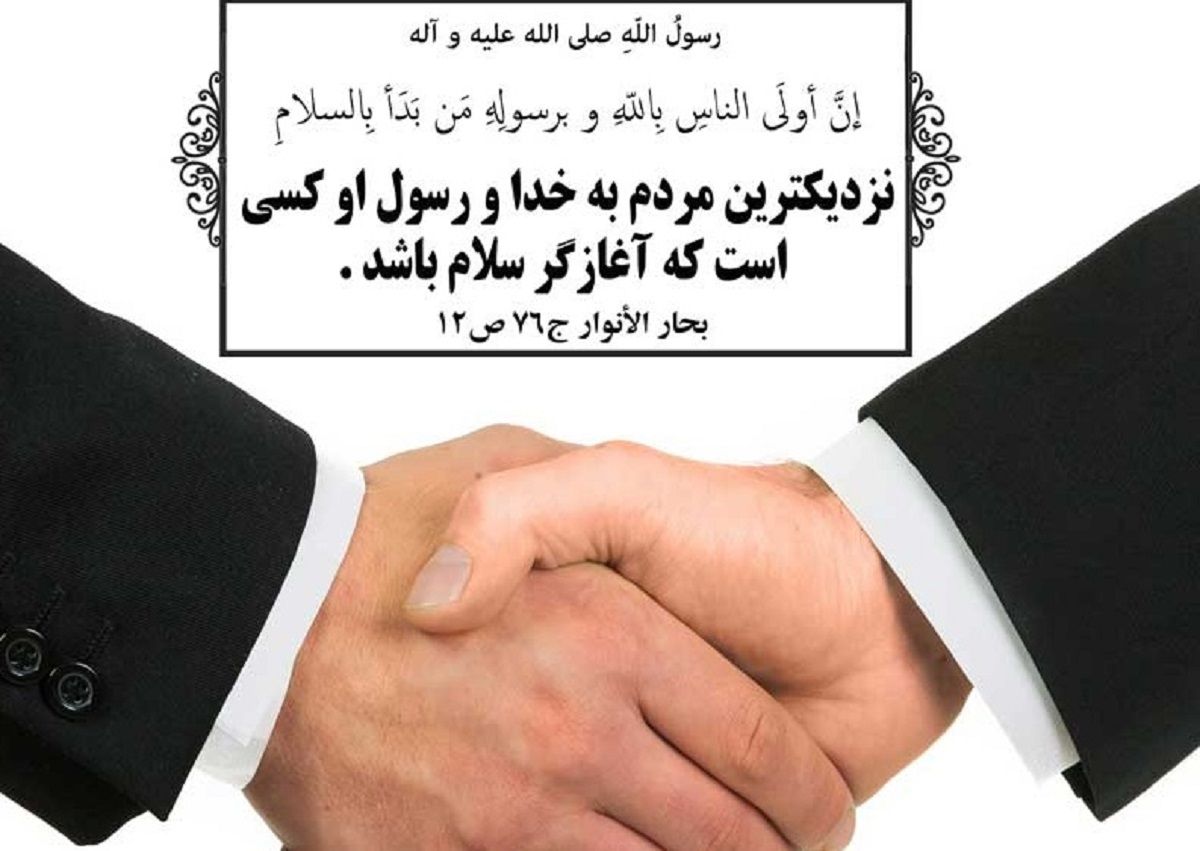

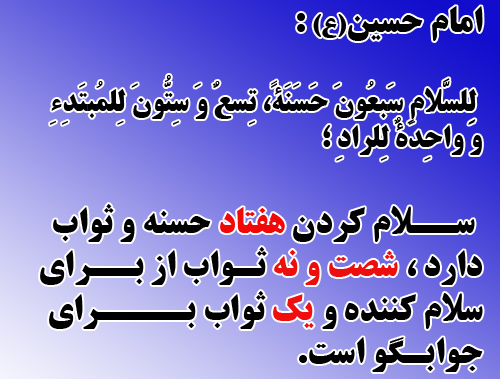
Groups with whom you can easily initiate the first greeting.
Most online stores, whether on platforms like Digikala, Basalam, Torob, Baskool, Emalls, or those active on Instagram, are B2C.
Even if they are B2B, rest assured they are not at a high level, meaning they don't directly source products but rather obtain them from a trader.
You can easily reach out to these individuals via text, email, or through social media platforms, introducing yourself and your business activities to them.
Describe the competitive advantages of your product and the benefits of collaborating with you.
Try not to send too many messages to avoid being blocked by communication systems.
For instance, sending 5 text messages, 3 WhatsApp messages, 7 Telegram messages, 5 to 10 Instagram messages, 3 LinkedIn messages, and messages on other foreign social networks won't pose any problem of being blocked.
You can even start initiating first contact via email, especially for export purposes.
Simply find their phone numbers or emails through relevant websites and message them.
Since initiating communication via phone might be psychologically challenging, it's advisable to start with a message.
If you send messages to a few of these individuals daily, especially if you mention their full name at the beginning of the message, you'll have a greater impact.
Make sure to convey in your message that your goal is to establish a mutually beneficial collaboration for financial gain.
Rest assured, some of these individuals will respond to your message, initiating a business negotiation.
We recommend friends in the export business to start with these messages through active individuals on sites like Alibaba.com and many local websites introduced in business knowledge articles.
If you need the names of websites to find B2B or B2C entities, you can open a ticket with Arad User so that we can send you more accurate information.
Being present in various social media groups such as Telegram, both domestically and internationally, can create numerous relationships for you.
We recommend actively participating in Telegram, LinkedIn, Instagram groups, as well as other local messaging platforms like Eitaa, where good opportunities exist.
The bottom line is not to wait for customers to come to you and ask, "Merchant, are you willing to sell your product to me so I can give you my card number and transfer the money?"
Instead, actively seek out opportunities yourself, as where there's a will there's a way.

The key to Arad's everlasting success and progress
We elucidate a key to Arad's advancement for you.
Whenever Arad encounters a challenge, it says, "I will find a way, or I will make one."
Our belief is rooted in the conviction that if God has placed us on the path of commerce, it signifies abundant blessings are destined for us.
And when God desires abundant blessings for someone, He never leaves them devoid of sustenance and provision.
Therefore, sustenance undoubtedly exists, and it is incumbent upon the individual to persevere, strive, and rely on patience and steadfastness to find and tread the path of salvation and success.
However, most newcomers, at the slightest adversity, abandon their efforts and become despondent.
They lack the resolve to fight.
They lack the spirit of struggle.
This is why we say commerce is an economic jihad.
This is why we say you must be passionate.
To prevent yourself from giving up at the first hurdle,
To not lose heart.
You must say, "Well, if the first method didn't work, then the second.
If the second didn't work, then the third.
If the third didn't work, then the fourth and so on."
Just the fact that God has placed me in commerce and acquainted me with it means He desires to enrich me.
Because it is far from the attributes of the Generous Lord to show a blessing to His servant and then not bestow it.
Could it be possible for a generous person to show a child a balloon or chocolate and then begrudge it when the child asks for it?
Only here, the child must step forward to take that object, and if he doesn't, he won't receive it naturally.
Thus, the fact that God has orchestrated His decrees in such a way as to acquaint me with commerce signifies His desire to make me wealthy.
Unless I abandon my efforts halfway and retreat.
Otherwise, if He didn't want to make me wealthy, like in previous years, He wouldn't have acquainted me with commerce at all, so I would remain in low-paying jobs.
So, God wants me to become rich, He has shown me the way and placed guides on my path, who relentlessly pull me forward, urging me to come and learn the way, act upon it, and elevate my dignity.
So I must be a fighter.
I must be brave.
I must be bold.
Like a bridge.
It means if I see an obstacle blocking my path, I must build a bridge to cross that obstacle.
Whenever Arad sees a business left with no leads and signals in any business, he creates signaling by itmself.
In some places, Arad does this with money and advertising.
In other places, with human resources searching in various locations to find leads and signals.
In short, he doesn't let a day pass without having a signal.
But there are many traders who spend many days without leads and signals.
The only thing they do is complain and blame Arad for not bringing leads and signals.
Think about it for a moment.
What if Arad died?
If Arad dies, would you go back to your old ways and abandon your business?
Learn signaling so that if this happens, Arad's death won't worry you.
Let's be honest with each other for a moment.
No company, neither Digikala, nor Snapp, nor Torob nor Alibaba nor any other global or local companies will tell you to learn signaling.
Because if you learn it, you become independent of them and won't need them anymore.
You won't see any advertisements on TV, radio, or billboards telling you to learn signaling, unless they want to sell you something and take money from you, perpetually positioning you as a consumer.
Arad says, "Come and become independent in signaling."
Put your website address in the comments on my site so you can become strong and independent from me.
Make money and be independent.
My pleasure lies in making you rich.
Surely, you'll become rich and independent, you'll never abandon Arad.
This view is very superficial and short-sighted to think that if you become independent and wealthy, you'll abandon Arad.
You are Arad's children.
Perhaps out of every 10 children, one or two forget their childhood memories as they grow up, but most of them are not like that.
Arad doesn't want a family where his children are always dependent and needy, and if anything happens to the father, the children's lives are at risk.
Arad wants to raise his children in a way that they can be independent support and refuge for many relatives, friends, and perhaps pillars and supports of their city's people.
With dependence on Arad, one cannot become a support for the people.
If a merchant becomes independent in obtaining his signals, and gradually learns and strengthens negotiation skills, then Arad no longer worries, knowing that his children have become capable.
Just last night, we celebrated Sha'banian celebrations and visited dear merchants who were completely independent of Arad's signals and, thank God, reported that they earn several hundred million tomans monthly and also attend Arad's ceremonies with love and respect.
Not only has this independence has not reduced from their affection for Arad, but it has significantly increased it.
In your opinion, is a child who has been taught financial independence by his father more loving towards his family and father, or a child who is always dependent on his father?
Become independent because our joy lies in your independence.

0
0